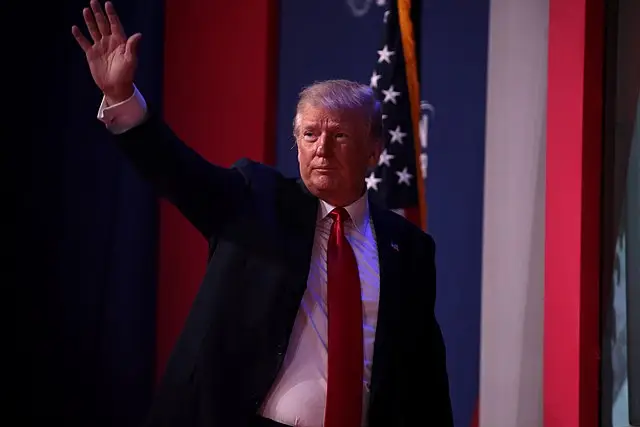Trump considers pausing auto tariffs as White House gets sued over sweeping tariffs

Trump Mulls Auto Tariff Pause Amid Legal Heat Over Sweeping Trade Policy
Washington D.C., April 15, 2025 — Former President Donald Trump’s aggressive trade policies are once again at the center of national debate, as he signals a potential pause on auto tariffs while facing a fresh lawsuit challenging his broader tariff strategy. The move comes at a time when economic stakeholders and legal experts are closely watching Trump’s actions in anticipation of his 2024 comeback campaign’s economic agenda.
Legal Pushback Over Sweeping Tariffs
A coalition of U.S. businesses and international trade organizations has filed a federal lawsuit against the White House, claiming that recent expansions of import tariffs under Trump’s 2024 campaign-era promises are unconstitutional and damaging to global trade norms. The suit, filed in the U.S. Court of International Trade, argues that the sweeping measures lack congressional oversight and violate international trade agreements.
At the center of the dispute are tariffs that Trump either imposed or plans to extend on a wide range of goods, including electronics, metals, and automotive parts. The plaintiffs claim these measures have raised costs for American consumers and disrupted supply chains across sectors.
Trump Softens Tone on Auto Tariffs
In a surprising shift, Trump, known for his hardline “America First” trade rhetoric, indicated over the weekend that he is “open to a pause” on proposed auto tariffs—particularly those affecting European and Asian automakers. This pause, he said, would give his administration time to “review global cooperation levels” and “assess the damage done by Biden-era trade inconsistencies.”
Trump’s comments, made during a campaign-style rally in Michigan, were met with mixed reactions. U.S. auto manufacturers cautiously welcomed the idea of a delay, with some industry insiders calling it a “much-needed breathing space.” Meanwhile, international trade allies urged the U.S. to reconsider the broader protectionist strategy entirely.
Business Leaders and Economists React
Business leaders expressed concern over the continuing uncertainty in trade policy. “The constant back-and-forth on tariffs creates instability for long-term investment decisions,” said Laura Chen, a senior economist at the Trade Policy Institute. “Even a pause on auto tariffs won’t erase the chilling effect already felt in the manufacturing sector.”
Auto companies, particularly those with international supply chains, have been lobbying against the proposed tariffs for months. German automakers, for instance, warned that even a temporary measure could result in price hikes and job losses on both sides of the Atlantic.
Political Motives or Strategic Pivot?
Critics argue that Trump’s sudden openness to reconsidering auto tariffs may be politically motivated. With key states like Michigan and Pennsylvania reliant on auto manufacturing, easing trade pressure could be a strategic move to regain support in those swing states.
“Trump is reading the electoral map,” said political analyst James Barrett. “He knows that tariff fatigue is real, especially in industries where his trade war policies have had direct consequences.”
Still, some of Trump’s loyal supporters applaud the toughness on trade, arguing that temporary sacrifices are necessary to restore U.S. dominance in global commerce. “He’s the only one putting America first,” said rally attendee Bob McMillan in Detroit. “These lawsuits are just noise from globalists.”
The Road Ahead
With the legal battle heating up and economic stakeholders pressing for clarity, the next few weeks will be crucial in shaping America’s trade direction. If the courts rule in favor of the lawsuit, it could severely limit Trump’s ability to unilaterally impose tariffs, even if he wins back the presidency.
Meanwhile, the pause on auto tariffs remains tentative, with no official executive order or policy memo released as of Monday morning. As markets react and global partners wait for clarity, Trump’s trademark unpredictability on trade continues to make waves—both at home and abroad.






